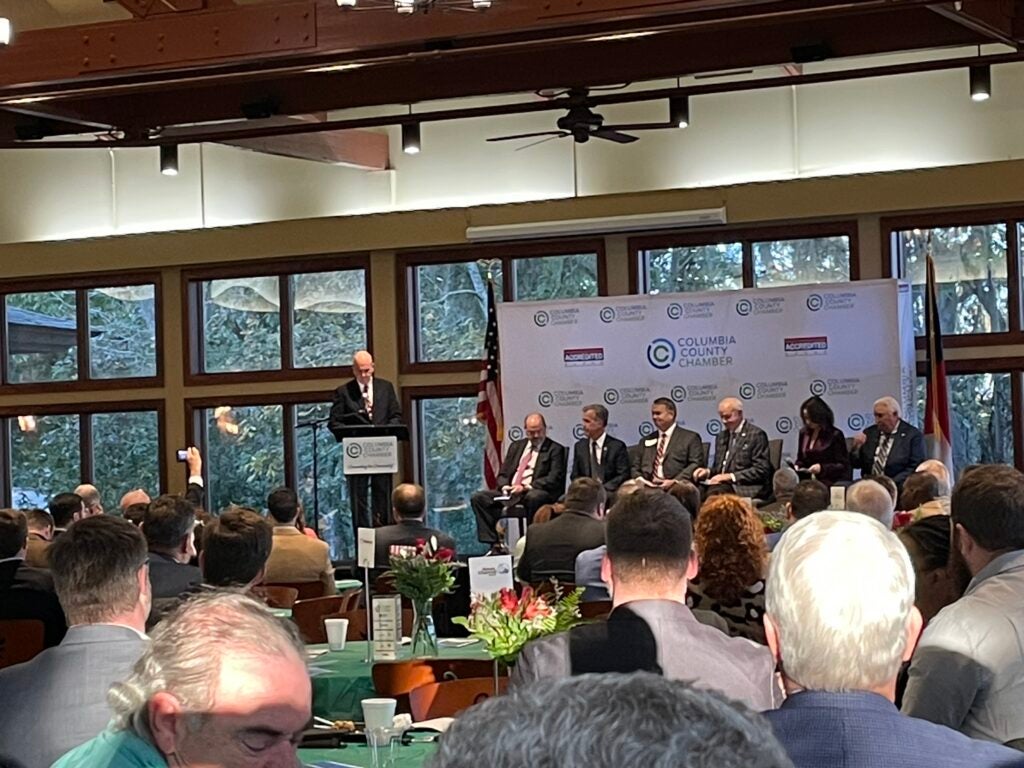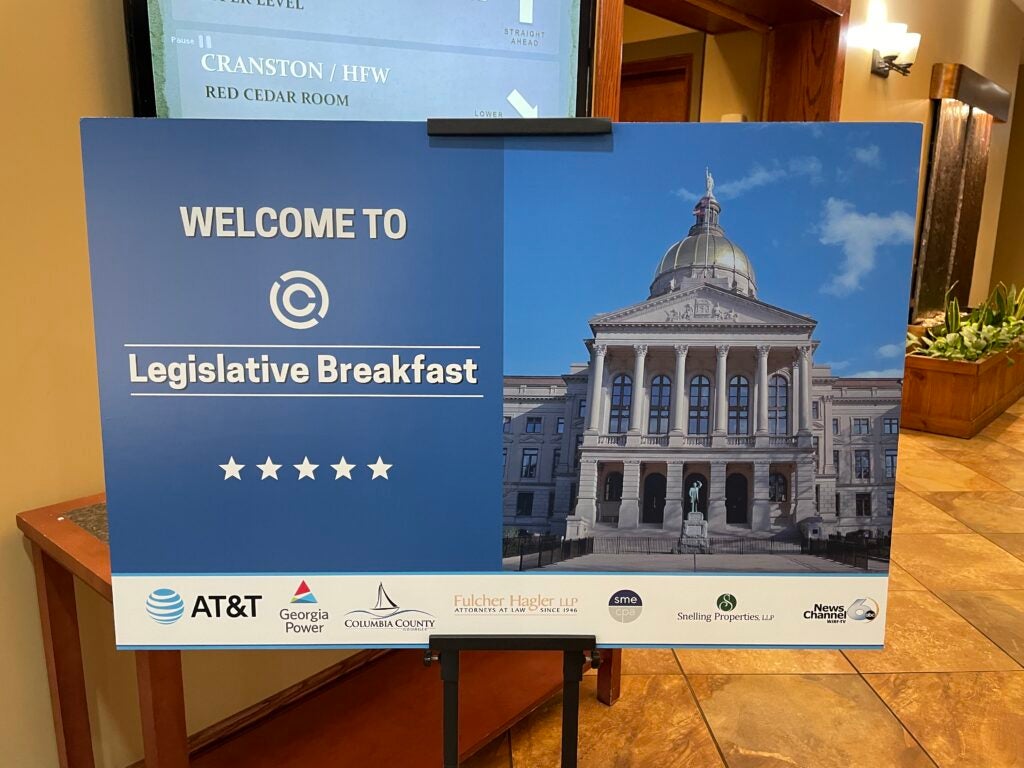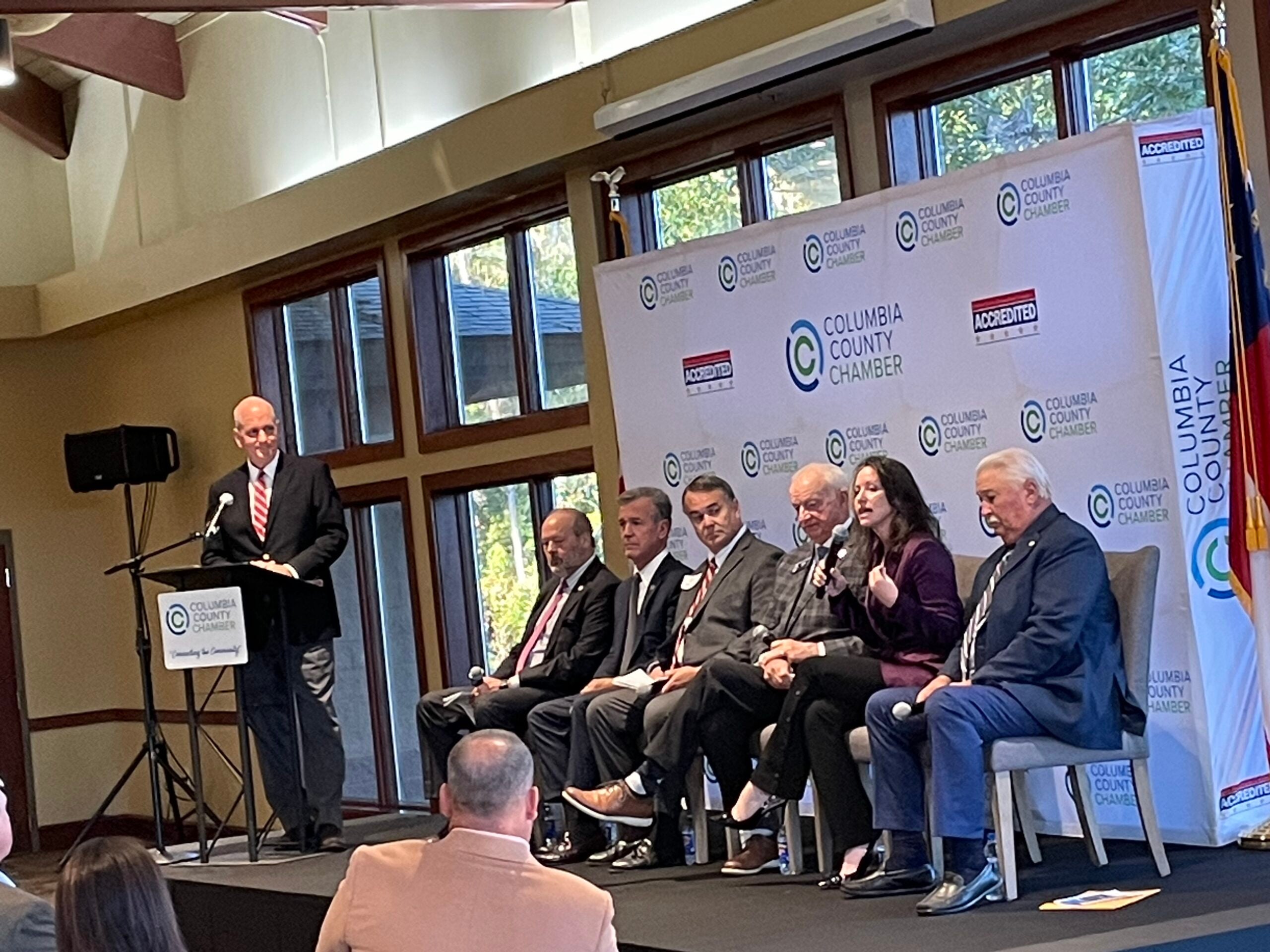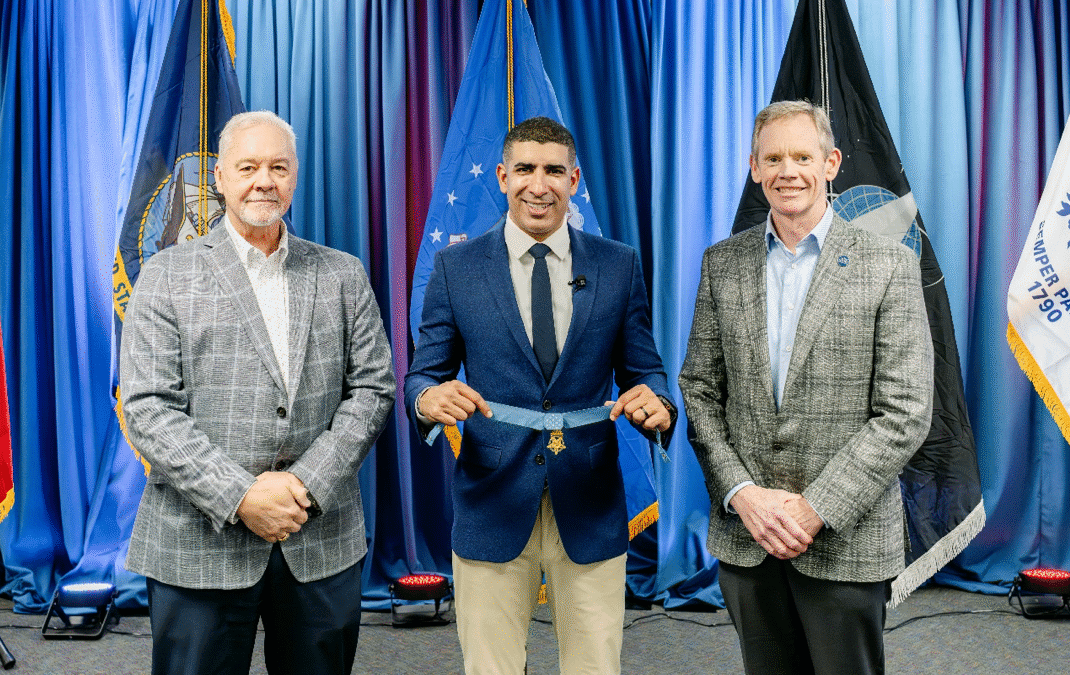The Columbia County Chamber of Commerce hosted a large crowd of attendees at its Legislative Breakfast, Thursday, Nov. 2 at Savannah Rapids Pavilion. Attendees included that included chairs and several members of the Board of Commissioners and the Board of Education.
Each year the Chamber hosts a post-legislative breakfast in the spring, and a pre-legislative breakfast in the fall. The biannual conference and forum, organized by the Chamber’s government affairs committee, invites professional and political leaders to speak on various pressing legislative issues concerning local business.
Russell Keen, chair of the government affairs committee, noted military and veterans’ affairs, infrastructure, and workforce tech and education as the county’s key legislative priorities for 2024.
“This state is a very favorable state for business,” said Keen. “We want to keep it that way, particularly in Columbia County, and we’ll see the things that we believe are very important to maintaining and creating stronger climates.”
This year’s panel, moderated by WJBF anchor Brad Means, consisted of a delegation of six Georgia lawmakers: state senators Lee Anderson and Max Burns, and Georgia House representatives Barry Fleming, Rob Leverett, Jodi Lott and Mark Newton.
“We’re definitely going to have to confront some ways to be able to raise the base salary above people that work for the state,” said Anderson, addressing the issue of workforce retention, particularly in government positions.
The state senator cited an anecdote about a former finance director with the Coastal Resources Division of the Georgia Dept. of Natural Resources, saying she had resigned from her position for a private sector role that doubled her pay.
Anderson noted that every department with the state government is struggling to find new hires, saying, “We are going to get to the point to where we have to raise.”
Lott responded to the same topic from the angle of childcare concerns. She emphasized the viability of technical colleges, and referred to Georgia’s Hope Career Grant program, which offers free tuition for 18 tech college programs of study — one of which, Lott noted, is Early Childhood Care and Education.
“It’s… this big giant team effort,” Lott said. “How do we get our schools motivated to help our public education… motivated to really encourage kids to get out there and view the technical college system and what they have to offer.”
Burns discussed the impact of tax credits on Georgia’s economy, expounding on the aims of the state’s Joint Tax Review Panel, chaired by Rep. Shaw Blackmon and Sen. Chuck Hufstetler.

“Our objective is not to reduce or eliminate tax credits. Our objective is to understand the return on our investment for those tax credits,” said Burns. “We’re looking for return on investment at the end of the day. The objective is to attract jobs to employ people to enhance the tax base.”
Regarding the matter of litigation, Rep. Leverett mentioned the General Assembly’s push to codify into law the apex doctrine, which would provide protections for high-level corporate officers from certain depositions.
He also referred to the CANDOR Act, passed in the House and pending in the Senate, which would allow for alternative means for patients and healthcare providers to communicate openly and seek alternatives to malpractice suits.
“I think it’s a big priority for the Chamber, the State Chamber, and all of us to make sure that our justice system functions properly and isn’t subject to abuse,” Leverett said.
Newton, who is also the chief medical officer of Evans-based urgent care clinic MedNow, addressed challenges with Georgia’s healthcare infrastructure, such as updating its certificate of need laws, and observing that healthcare in the state “functions almost like a utility” that “needs protection,” particularly struggling healthcare systems outside of the Atlanta metro area.
“We’re trying to take a careful look at certificate of need as we modernize it,” Newton said. “Is there a way we can do it that also recognizes, and frankly even strengthens, the access that people want [and] still addresses affordability.”
When Means asked Fleming which states were Georgia’s strongest competitors in lowering taxes and regulations, the representative mentioned both Florida and Texas, neither of which have individual income tax; and North Carolina, which has been lowering its income taxes.

“When you’re at a Fortune 500 company, or a significant company, and you’re thinking about where to relocate your business, something about going to a place where you don’t have to pay any taxes is a great thing,” Fleming said.
Skyler Q. Andrews is a staff reporter for The Augusta Press. Reach him at skyler@theaugustapress.com.











